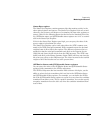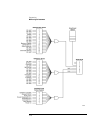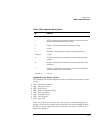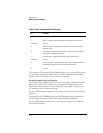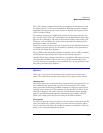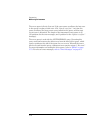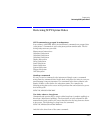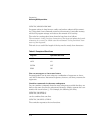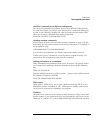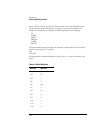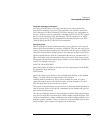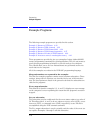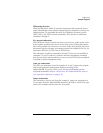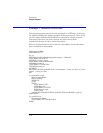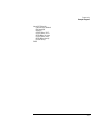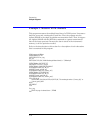
4-25
Programming
Reviewing SCPI Syntax Rules
Combine commands from different subsystems
You can send commands and program queries from different subsystems on
the same line. Simply precede the new subsystem by a semicolon followed by
a colon. In the following example, the colon and semicolon pair before DISP
allows you to send a command from another subsystem.
OUTPUT 720;”:CALC2:PEXC 12;:DISP:WIND:GRAP:STAT OFF”
Sending common commands
If a subsystem has been selected and a common command is received by the
instrument, the instrument remains in the selected subsystem. For example, if
the program message
”DISPLAY:MARK:MAX:LEFT;*CLS;DISP:MARK:MAX:RIGH”
is received by the instrument, the Display subsystem remains selected.
If some other type of command is received within a program message, you
must reenter the original subsystem after the command.
Adding parameters to a command
Many commands have parameters that specify an option. Use a space charac-
ter to separate the parameter from the command as shown in the following
line:
OUTPUT 720;”:INIT:CONT ON”
Separate multiple parameters with a comma (,). Spaces can be added around
the commas to improve readability.
OUTPUT 720;”:MEAS:SCAL:POW:FREQ? 1300, MAX”
White space
White space is defined to be one or more characters from the ASCII set of 0
through 32 decimal, excluding 10 (NL). White space is usually optional, and
can be used to increase the readability of a program.
Numbers
All numbers are expected to be strings of ASCII characters. Thus, when send-
ing the number 9, you would send a byte representing the ASCII code for the
character “9” (which is 57). A three-digit number like 102 would take up three



